Ammonius Hermiae was a Greek philosopher from Alexandria in the eastern Roman empire during Late Antiquity. A Neoplatonist, he was the son of the philosophers Hermias and Aedesia, the brother of Heliodorus of Alexandria and the grandson of Syrianus. Ammonius was a pupil of Proclus in Roman Athens, and taught at Alexandria for most of his life, having obtained a public chair in the 470s.

Sir Gawain and the Green Knight is a late 14th-century chivalric romance in Middle English. The author is unknown; the title was given centuries later. It is one of the best-known Arthurian stories, with its plot combining two types of folk motifs: the beheading game, and the exchange of winnings. Written in stanzas of alliterative verse, each of which ends in a rhyming bob and wheel; it draws on Welsh, Irish, and English stories, as well as the French chivalric tradition. It is an important example of a chivalric romance, which typically involves a hero who goes on a quest which tests his prowess. It remains popular in modern English renderings from J. R. R. Tolkien, Simon Armitage, and others, as well as through film and stage adaptations.
William Payne Alston was an American philosopher. He is widely considered to be one of the most important epistemologists and philosophers of religion of the twentieth century, and is also known for his work in metaphysics and the philosophy of language. His views on foundationalism, internalism and externalism, speech acts, and the epistemic value of mystical experience, among many other topics, have been very influential. He earned his PhD from the University of Chicago and taught at the University of Michigan, Rutgers University, University of Illinois, and Syracuse University.

Giambattista Vico was an Italian philosopher, rhetorician, historian, and jurist during the Italian Enlightenment. He criticized the expansion and development of modern rationalism, finding Cartesian analysis and other types of reductionism impractical to human life, and he was an apologist for classical antiquity and the Renaissance humanities, in addition to being the first expositor of the fundamentals of social science and of semiotics. He is recognised as one of the first Counter-Enlightenment figures in history.
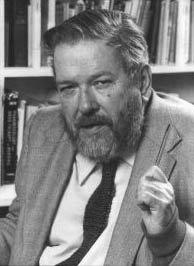
George Parkin Grant was a Canadian philosopher and political commentator. He is best known for his Canadian nationalism, political conservatism, and his views on technology, pacifism, and Christian faith. He is often seen as one of Canada's most original thinkers.
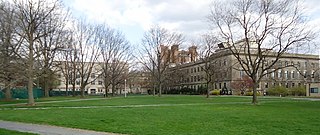
The New York State College of Agriculture and Life Sciences at Cornell University is a statutory college and one of the four New York State contract colleges on the Cornell University campus in Ithaca, New York. With enrollment of approximately 3,100 undergraduate and 1,000 graduate students, CALS is the third-largest college of its kind in the United States and the second-largest undergraduate college on the Cornell campus.

Walter Jackson Ong was an American Jesuit priest, professor of English literature, cultural and religious historian, and philosopher. His major interest was in exploring how the transition from orality to literacy influenced culture and changed human consciousness. In 1978 he served as elected president of the Modern Language Association.
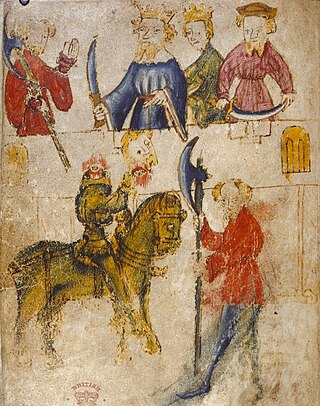
The Green Knight is a character from the 14th-century Arthurian poem Sir Gawain and the Green Knight and the related medieval work The Greene Knight. His true name is revealed to be Bertilak de Hautdesert in Sir Gawain, while The Greene Knight names him "Bredbeddle". The Green Knight later features as one of Arthur's greatest champions in the fragmentary ballad "King Arthur and King Cornwall", again with the name "Bredbeddle".
Jonathan Culler is an American literary critic. He was Class of 1916 Professor of English and Comparative Literature at Cornell University. His published works are in the fields of structuralism, literary theory and literary criticism.

The Cornell University Press is the university press of Cornell University; currently housed in Sage House, the former residence of Henry William Sage. It was first established in 1869, making it the first university publishing enterprise in the United States, but was inactive from 1884 to 1930.

Morris Gilbert Bishop was an American scholar, based at Cornell University, who wrote numerous books in Romance history, biography and literature, but whose work encompassed the early exploration of North America and the history of Cornell. He was also a prolific contributor of light verse and short prose pieces to the popular magazines of the day; his verse has also been collected in books.

David Gries is an American computer scientist at Cornell University, United States mainly known for his books The Science of Programming (1981) and A Logical Approach to Discrete Math.

Jane Dammen McAuliffe is an American educator, scholar of Islam and the inaugural director of national and international outreach at the Library of Congress. She is a president emeritus of Bryn Mawr College and former dean of Georgetown College at Georgetown University. As a specialist in the Qur'an and its interpretation, McAuliffe has edited the six-volume Encyclopaedia of the Qurʾān and continues to lead the editorial team for the online edition of the work.
Brian Leftow is an American philosopher specializing in philosophy of religion, medieval philosophy, and metaphysics. He is the William P. Alston Professor for the Philosophy of Religion at Rutgers University. Previously, he held the Nolloth Chair of the Philosophy of the Christian Religion at Oriel College, Oxford, succeeding Richard Swinburne.
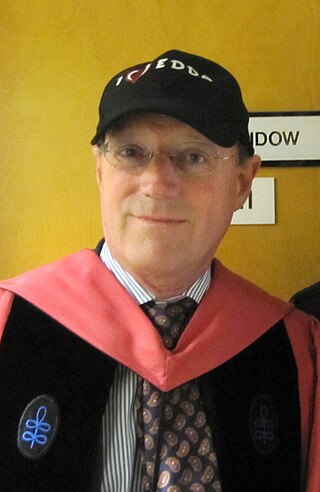
John Frederick Lindow is an American philologist who is Professor Emeritus of Old Norse and Folklore at University of California, Berkeley. He is a well known authority on Old Norse religion and literature.
Robert de Gretham, alternatively Robert de Greetham, was an Anglo-Norman literary person and cleric. He was noted for the book Etude sur le Miroir ou les Evangiles des domnees.
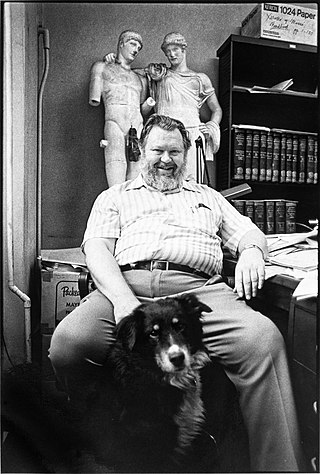
Robert Earl Kaske was an American professor of medieval literature. He spent most of his career at Cornell University in Ithaca, New York, where he was the Avalon Foundation Professor in the Humanities, and where he founded one of the preeminent medieval studies graduate programs in North America. His published output included lengthy interpretations of Beowulf and of poems and passages by Dante and Chaucer, and frequently constituted leading studies. Kaske particularly enjoyed solving cruxes, with articles on problematic passages in works such as Pearl, Piers Plowman, the Divine Comedy, The Husband's Message, The Descent into Hell, and Beowulf.
Gertrud Schiller was a German art historian, nurse, social pedagogue and Lutheran teacher of religion. Despite not having a doctorate in art history, she wrote what remains a standard work on Christian iconography. Schiller received an honorary doctorate from the Kirchliche Hochschule Berlin in 1979.
William of Auberive was a Cistercian monk and numerologist who served as the abbot of Auberive from 1165 until 1186.
Arthur B. Groos is an American philologist, musicologist, medievalist and Germanist.
 [3]
[3] 










